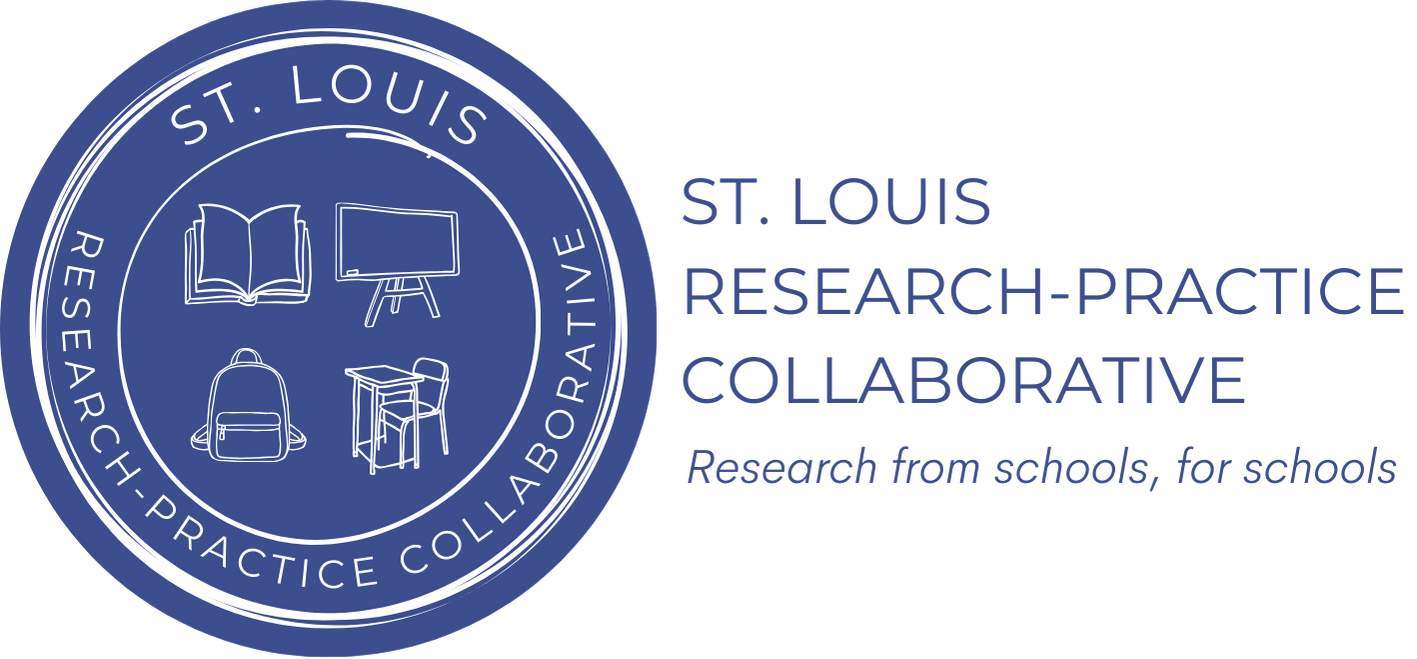Frequently Asked Questions
What is a Research Practice Partnership (RPP)?
Research-practice partnerships (RPPs) are long-term collaborations between school districts and higher education institutions to help improve education. It’s a mutual relationship in which university researchers get access to education data, and the districts benefit from the analysis. Read more here.
How is the SRPC funded?
Work is supported by a combination of in-kind in the form of staff time from participating institutions as well as grants from the James S. McDonnell Foundation and a small, anonymous, local family foundation. The group will continue to seek a mix of philanthropic support, research and implementation grants to support the work.
What work has been done?
Schools, universities, and local community organizations started designing the SRPC in 2020. Since that time, we’ve done some baseline research around student mobility, which school partners have identified as a major challenge to students’ success in St. Louis.
Who are SRPC’s partners?
Right now, we are partnering with St. Louis City’s largest providers of public education: St. Louis Public Schools, KIPP St. Louis charter schools, and Confluence Academies. We’re also working with schools of education and centers at Washington University, Harris-Stowe State University, the University of Missouri-St. Louis, and St. Louis University. SKIP Designed is providing pro-bono project management support.
What does it mean that this is a “pilot?”
At the recommendation of the design council members, the initial research topic the SRPC is exploring is designated as a “pilot”, which means we are testing whether or not this type of partnership can lead to useful information for practitioners that enhance students’ experiences of education in STL. We are closely monitoring the challenges and strengths of working this way on the topic of student mobility and will use this information to determine next steps.
What is the process for setting our research agenda?
Research targets are guided by the school practitioners in the SRPC. For instance, our first topic of student mobility was identified by all three school leaders as a challenge that practitioners want to understand in order to effectively address. Once complete, research findings will be shared, interpreted, and analyzed with educators, school leaders, and families/students so school personnel can adjust and design practices to better serve students.
What geographical areas does the SRPC cover?
During its pilot, the SRPC is focused specifically on St. Louis City schools. However, the long-term goal is to expand and partner with schools all across the St. Louis region.
Will the public ever learn about the research?
Yes! While schools will get the first look at data, the SRPC is committed to transparency to the public. A secondary part of our mission is to inform policy and discussion around education. Look for our findings to be shared through newsletters, seminars, briefings and on social media.
